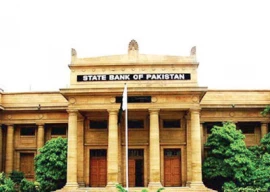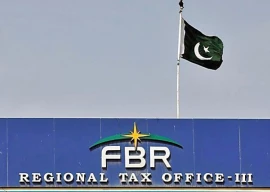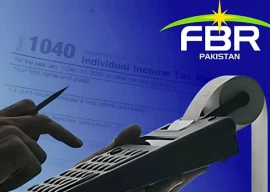
It has only been a few weeks and already Pakistan Railways’ experiment to allow private sector companies to operate some of its train routes is beginning to yield better service quality and even the start of a price war between the two companies that have so far been given licences.
Four Brothers, the company that operates the Business Express, and Air Rail Services, the firm that is now operating the Shalimar Express, claim that they are not in competition with each other. This is at least partially true since both trains operate on different routes. While both trains run from Lahore to Karachi, the Shalimar Express stops in Faisalabad and Multan on the way, while the Business Express travels through a different track and skips those cities. Both trains go through the same track from Bahawalpur onwards to Karachi.
Yet for all their protests of not being in competition, both companies are copying each other’s strategy and effectively treating the other as a rival.
Shalimar Express, for instance, recently lowered its fares by an average of 10% in order to attract more passengers and installed LCD screens on nearly all of its seats, a facility that is offered on the Business Express. Meanwhile, the Business Express – which was originally meant to be a single-class train for more affluent passengers – has now introduced a budget and economy class to attract more passengers across the income spectrum.
Executives at both companies seemed to have a wary respect for the other, though insisted on not calling the other their rival.
“We are hopeful to take on the maximum number of passengers since we offer more classes and more facilities than the Business Express,” said Rafaqat Ali, the managing partner at the Shalimar Express. “Our timings and routes are different from Business Express, so one cannot exactly declare us with competition with them.”
“The Shalimar Express was re-launched to target economy class commuters,” said Ijaz Ahmad, chief operating officer of the Business Express. “Business Express is meant to serve the business community and their families. Our target passengers are different from the Shalimar Express and we are not worries about any of our customers shifting their preferences.”
Commuters, meanwhile, seem to be comparing the trains on the basis of one standard that has traditionally been difficult for public sector trains to meet: the ability to leave and arrive on time.
“Timing is a key preference for travellers so whoever manages to depart and arrive on time will get more passengers,” said Rafaqat Ali.
Both trains currently take approximately 18 hours to get from Lahore to Karachi and hence have been unable to effectively compete on timing. The Business Express in particular has been trying to shorten its commute time down to about 14 hours. In the meantime, consumers seem to be differentiating between the two trains based on their brand identities.
“It’s a matter of perception,” said Ahmer Ali, a commuter on the Business Express. “The Shalimar Express has traditionally been seen as catering to middle and lower income families. The Business Express is perceived to be for higher income groups. The fare difference between the two trains strengthens that perception. I thought very few people would opt to travel by the Shalimar once they had travelled by the Business Express, although the Shalimar Express does look more luxurious.”
The presence of private sector trains, meanwhile, seems to have spurred even the sleepy state-owned Pakistan Railways into action.
“With the introduction of these ventures, the pressure on us has increased,” said Saeed Akhtar, the general manager for operations at Pakistan Railways. “We are also working hard to operate some express trains with better quality services. We are improving our locomotive fleet and soon our passengers will be able to feel the improvements in our operations.”
Pakistan Railways has been bleeding money for decades now. In 2010, the latest year for which financial data is available, the state-owned company racked up Rs25 billion in net losses, higher than the Rs22 billion it collected in revenues. The private sector trains, which make fixed payments to the railways in exchange for the right to operate the trains and set ticket prices, were meant to help the public sector company generate more revenues.
Published in The Express Tribune, March 2nd, 2012.
COMMENTS (14)
Comments are moderated and generally will be posted if they are on-topic and not abusive.
For more information, please see our Comments FAQ

1726117332-0/Megan-Thee-Stallion-(1)1726117332-0-165x106.webp)





















@Mohan Lamba: Don't judge .. on second train.. The main issue why private secotr is operating in Lahore and Karachi only .. who will privde service to villages where day to day lifehood is depend on trians for gonig to work etc. Indian railways has done this job far better..Go live in villege in UP etc. and see how railways benefits the villeges not only metros .. I donot think Private companies can give any better option than Rajdhani or Shatabi express connecting major metros
Why isn't India doing this already? Those who say it won't work, because the 'open skies' policy in Pakistan and India have failed, overlook the fact that the overwhelming portion of intercity and trans-regional passenger trips are done on rails. The critical mass and capacity exists. What is required is to optimize that capacity and cost, with commensurate improvements in operations and service. What India and Pakistan both need, is not the 'open skies' policy, but an integrated 'Open Tracks' policy. This will fast track the faster tracks. Literally.
@mazhar:dont try to smell a conspiracy like an uneducated guy.its an established fact that private sector brings efficiency.i appreciate this step of bringing private sector.
So is this why Pakistan Railways was destroyed in the first place? To provide a market for the private sector to enter?
Great news indeed. As for their cross-competition in attracting each other's customer segments, it reminds me of an article Porter had published in HBR in which he stated an interesting observation that even though businesses start out different, over time they start looking like the same. Core competency is the essence of differentiation strategy.
Good..
Now...Why don't we privatize the whole railways and PIA? Exchequer will earn in taxes instead to paying billions in losses!
I am amazed nobody is praising PPP for this effort. This is great news for Pakistan railway and Pakistani travellers. We can save billions by not buying oil for these hungry trucks/tanker if most of the country freight is done by railways.
Government should start local trains within Lahore and Karachi(KCR), our annual oil import is 40-50% ($10-12 billion) of total import. We can decrease the inflation and can have current account surplus and that way the price of $ will decrease.
if we apply same formula as in telecom sector where govt. only acts as a regulatory body and lets private company do work. i am 100 percent sure that we will a complete change in railways with in a year
Filler article.
healthy sign, healthy competition is needed for better service.. All those haters who were protesting aggainst privatising can now laugh at themself
it is very nice and feeling good when our railway department is going some how good competition is always good and be limited.
at least something good is going there in Pakistan
very healthy sign.